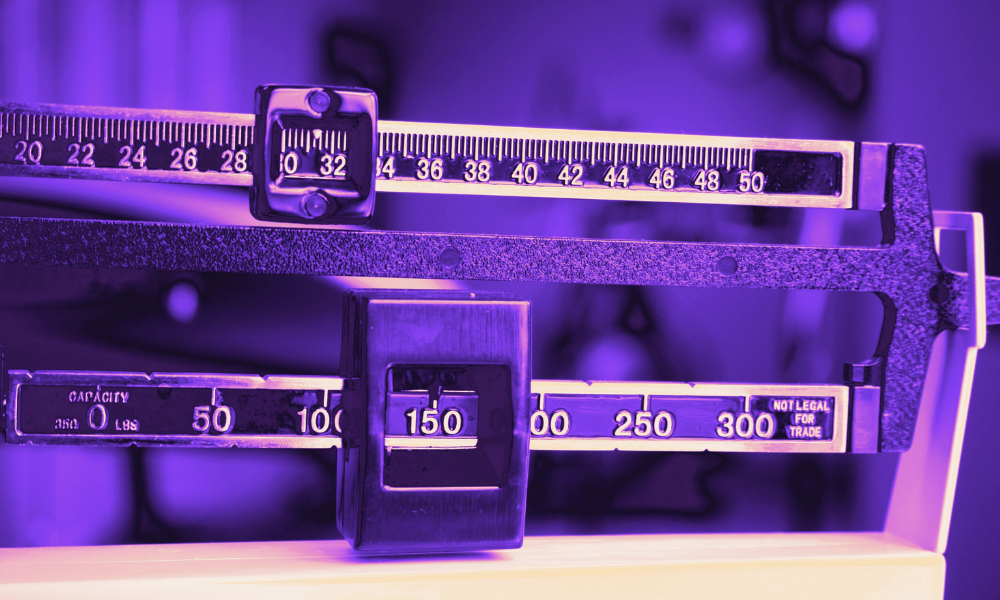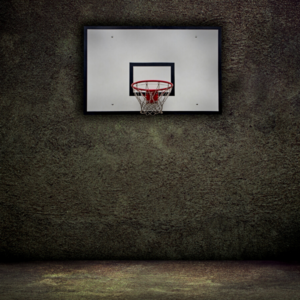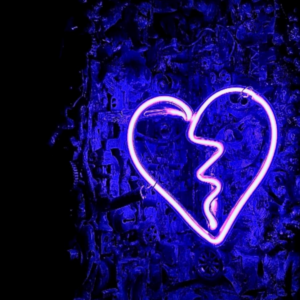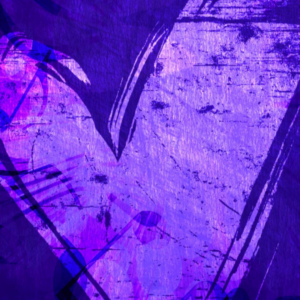Content warning: references to child abuse, eating disorders, and dieting
.
10.
You are ten years old.
It’s back-to-school shopping season.
Your mother is taking you back to school shopping, and you want to get some new Bobby Jack shirts to wear to school. You pick out a few that you like and try them on, stopping to admire yourself in the mirror each time. You think you look nice, but your mother sighs, displeased.
“That doesn’t fit you,” she says. “Stay here, I’ll go find a larger size.”
She comes back empty-handed. There is no larger size, she tells you. You put the Bobby Jack shirts back.
“Maybe when you slim down a little,” your mom promises.
“What’s that mean?” you ask, brow furrowed. You don’t know what the words mean, but you know from her expression they can’t be good.
Your mother hesitates. “You are a little big.” She delivers the line like it’s bad news, smiling in a way that she surely meant to be reassuring. “But it’s alright. We have your weight under control. We just need to keep an eye on it, that’s all.”
.
12.
You are twelve years old.
You are in the dressing room of a JC Penny’s, struggling to tug a pair of jeans to your waist. Puberty has filled you out in the hips and thighs, meaning you no longer fit into junior’s sizes. Children’s clothes hadn’t fit you in a long time, though it wasn’t something that overly concerned you. At twelve, you are already 5’5, about an inch taller than your mother—it only made sense that you needed to shop in the same section as her.
Your mother stands close behind you, several jeans draped over an arm for you to try on.
“They don’t fit,” you tell her, letting the jeans fall to your ankles and kicking them away from you. “We need to try a different size.” You are shirtless, wearing only a sports bra as you gather up the jeans and hand them back to your mother.
Your mother nods, taking the pants from you and glancing down at your stomach. She gets a peculiar look on her face, something akin to alarm, and says, “We need to get you back on a diet.”
“What?”
She points at your skin, at the raised dark lines crisscrossing your stomach and breasts, and says, “You have stretch marks. Girls your age shouldn’t have stretch marks.” Her voice is thick with concern. Fretful, like something is seriously wrong with you, as if the scars on your body are indicators of some terrible illness come to claim the life of her only daughter.
She sees the hurt in your eyes, and she forces a smile, laying a comforting hand on your bare shoulder. “I’m just worried about you, honey. I think we should probably make an appointment to see the diet doctor. Don’t worry about it—everything will be fine, once you lose a little weight.”
You glance back at the mirror, your heart fills with shame. You don’t dare take your shirt off in front of your mother again until college.
.
14.
You are fourteen years old.
You stare across the table at your thin brother as he swallows his third hotdog. You see the numbers in your head—150 calories per hot dog, times three, that makes 450. Taking into account the buns, the cheese, the ketchup, the mustard, and already his snack has reached the 700-800 range. Your mother says nothing as he gorges himself.
The rest of the family is eating tuna casserole. Mom hands your brother’s girlfriend a bowl before preparing your meal. Tuna casserole, but with half a cup of flaxseed and chia seeds mixed in. “Someone at work told me about this little trick,” she tells you. “It’ll keep us feeling fuller longer.”
She mixes. The seeds combine with the tuna into one big mess, and your mother smiles as she passes you the bowl. You grimace and take a bite. It looks like sand and tastes about the same.
“Oh, I can’t even taste it!” your mother lies as she struggles to bring the spoon to her lips.
You put your spoon down into the mess, and when you pick it back up, you find a wet seed lump on the end of the spoon. A noise across the table attracts your attention. It’s your brother, already three hotdogs in, enjoying a bowl of seedless tuna casserole.
You rise, taking the bowl to the trashcan and scraping your relatively untouched dinner into it. Your mother asks what you’re doing as you put your dishes in the sink, and you can’t answer her. You think you might say something unkind if you did.
.
15.
You are fifteen years old.
You sit in a room full of sad, desperate people clinging to fantasy and false prophets. Your mother is beside you, gleeful, reminding you to sit up and pay close attention to what the speaker has to say. She leans forward in her seat, as eager as a child on Christmas morning, eyes bright and alert.
You nod, already knowing this is going to be a massive waste of your time. You are a teenager, and cynical, and you know the speaker is nothing more than a conman who makes a living selling dreams to insecure women.
“Some of you may be nervous,” he says. “Let’s start out by making sure everyone is relaxed. Turn to your neighbor and give them a nice shoulder massage!”
There is an awkward shuffle of bodies as people turn to obey him. You keep your arms crossed until your mother prods you in the ribs. Reluctantly, you start rubbing your mother’s shoulders. The man behind moves as if to touch you, but when you glance up at him, he sees the youth in your face and drops his hands to his sides. He looks as uncomfortable as you feel, and you’re grateful that you aren’t the only one wishing the ground would open up and swallow you whole. You wonder if his mother made him come here, too.
“You know weight loss hypnosis is just a hoax, right?” You’d said to your mother in the car earlier, desperately hoping she would see reason and turn the car around. “He’s just gonna try and sell us stuff.”
“We won’t be buying anything,” she snapped at you. “The session is free.”
“If hypnosis actually worked,” you said pointedly. “It would never be free.”
The speaker tells you to close your eyes. “Imagine yourself feeling fuller,” he says, and you have to admit his voice is made for this. He’s a good speaker if nothing else, and you start feeling sleepy listening to his smooth, deep voice. “Stuffing yourself with food makes you feel slow, and tired, and disgusting. You never want to feel like this again.” He repeats the mantra for an hour, changing up the phrasing here and there.
At the end of the demonstration, he thanks everyone, smiling big as he gestures to the front of the room where a pretty, thin woman with a high topknot. She sits behind a table with bottles of non-FDA-approved pills and CDs with the speaker’s face on them. “Please buy my special vitamins,” he encourages. “To supplement what we have accomplished here today.”
Your mother buys both. She doesn’t let you see the receipt, but you know from the way her lips tighten minutely that it wasn’t cheap. The next morning, as you’re getting ready for school, your mother hands you one of the pills. They are plain white, and when you ask her what’s in them, she shrugs. “Please don’t tell your brother I gave this to you,” she pleads. “He’ll be mad if he knows you’re on diet pills.”
She ushers you out the door, reminding you to take your pill before you get on the bus. Once you see the top of her head disappear back inside the house, you throw the pill into the grass and go to school.
.
17.
You are seventeen years old.
Your mother tells you she found a diet doctor for the two of you.
“His patients have had amazing results,” she tells you eagerly. “I feel really good about this one.”
A few days later, you arrive at his office to find that the amazing diet doctor your mother told you about—is in fact a chiropractor, and his miracle diet plan is just keto plus daily lotions, alkaline water, and a kelp vitamin.
He gives you a list of approved foods as well as a recipe list and sends you on your way. Your mother frowns at the list, flipping the pages back and forth in obvious reluctance. “There’s only a few things on here I’m willing to eat,” she tells you. “I guess that means we’ll be eating a lot of the same meals.”
“But I like that.” You point at the recipe book. “And this, and that. Can’t we just try it?”
“No.” She stares at you as if you are crazy. “You know I don’t eat vegetables.”
You spend the rest of the year eating the same three meals. A rotation of eggs, turkey burgers, and chicken. Every day. Three times a day. It’s not enough food, you try to tell your mother. It’s an hour past dinner and your stomach is already rumbling. You need something else to eat.
“We already had dinner,” she tells you firmly. “It’s just because your stomach is used to overeating. If you’re still hungry, have a hard-boiled egg.”
You are seventeen years old, the fridge is full of food, and you are going to bed hungry every night. Sometimes, your body wakes you up at three or four in the morning, a gnarling hunger that ushers you into the kitchen to grab a handful of melba toast. The crackers taste like cardboard, but at least they work to quiet your empty stomach enough for sleep.
The next day, you get on the scale. Doing the math in your head, you realize you’ve lost about thirty pounds in three months. It’s too much too fast, and you know that, but nothing tastes as good as skinny feels and your mother seems happy with her progress. So instead, you say nothing.
You are tired all the time. You are finding it increasingly difficult to do your homework and pay attention in class. All you think about is food. Your friends have commented on how pale and withdrawn you’ve become, and they’re concerned, but you don’t know how to tell them the truth. So you lie.
“I’m just sick,” you reassure them. “And I have senioritis. I’ll be fine.” It isn’t a complete lie. You are sick. You are hungry. You smile through your tears as the scale ticks backward. Too much, too fast. You try to think about how you’ll look in six months’ time, a year. You tell yourself it’s worth it.
Your mother takes you back to the doctor. He’s busy, so you meet with his assistant instead—a thin woman with long curly hair and thick glasses. “I’m concerned,” she says, and for a moment you think she’s finally noticed how you’ve been struggling. “It just doesn’t seem like we’re losing weight fast enough. Is the diet not working?”
Your doctor’s assistant suggests you spend the next day eating nothing but apples. “That should kickstart things,” she promises. When you get back to the car, you glance down, noticing the fresh Mcdonald’s bags your mother has shoved underneath the seats. She sees you looking and smiles sheepishly.
“I cheat sometimes,” she admits. “But don’t worry, I always skip dinner when I get lunch at McDonald’s, so it balances out.”
You go to Walmart and buy a large bag of Granny Smith apples. “This should help,” your mother says. “Don’t worry, the weight will be flying off of us soon. We’re going to look so hot.”
You aren’t hot, you are freezing, your entire body shivering even when wrapped up in thick blankets. Your stomach hurts. It feels like someone is plunging a hot knife into your abdomen, rending your intestines into two pieces. Your burps start coming up tasting like acid, and eventually, the pain becomes so great your mother rushes you to the hospital.
They tell you that you must be hospitalized. You have acute pancreatitis, and they want to monitor you over the weekend. It turns out that the pain wasn’t coming from acid reflux like you thought, but gallstones—tiny, crystalline masses blocking your bile ducts and causing you to double over in pain. You are unclear about the science, but because your gallbladder was in distress, it causes a reaction in your pancreas as well—a condition that can be fatal if left untreated.
“You’re very young to be having gallstones,” the doctor says, and he sounds puzzled. “Usually we only see gallstone issues in people who have been alcoholics for twenty, thirty years.”
“What else could have caused it?”
“Well—” He pauses. “Excessive weight loss would do it, but—”
You perk up. Finally, an opportunity to tell someone what’s been going on with you. “I lost thirty pounds in three months,” you tell him eagerly, feeling vindicated. He glances at your mother, eyebrows raised.
“Oh, that’s not true,” she tells the doctor mildly. “She’s lost a little weight lately, but nothing like that.”
When the doctor leaves, you turn back to your mother. Furious, you grip the hospital sheets beneath you with both fists. “Why did you lie to the doctor?”
“I didn’t lie,” she says, sounding hurt. “You haven’t lost that much. I would have noticed.”
You stare at her, realizing that despite your frequent weigh-ins, all the fuss over the numbers on the scales, she hadn’t actually been monitoring your progress the way you thought she was. She had no idea how much you weighed before, or even how much you weigh now. She just doesn’t believe you. Because you are still fat, the doctors don’t believe you either.
Later, the nurse weighs you in your hospital bed. You amend the numbers in your head: 35 pounds lost, not 30. Later, a nutritionist comes to see you, talking to you about proper nutrition and the importance of exercise. She pointedly mentions your family history of heart disease, high blood pressure, and diabetes. The implication is clear—lose weight or die, even though losing weight is what nearly killed you.
“You know why she said all that to you, right?” your mom says, shaking her head. “You’re still too overweight. We need to go back to the doctor. I just don’t understand why this isn’t working for you. We must be doing something wrong.”
You are glad you’re going to college soon.
.
20.
Twenty years old.
You embrace your best friend as she steps through the front door, kicking the snow from her boots before she crosses the threshold. You hold her against yourself, hugging her for the first time in months. She’s been away for work, and you missed her terribly. With her, she brought snacks for the girl’s night you have planned. Cheese Nips and Swiss Rolls, plus a 6-pack of Mountain Dew. Though it had been years since your mother abandoned the diet that could have killed you, she still frowns when she sees you laying the snacks out on the kitchen table.
“Don’t you girls be snacking all night long,” You both know this is solely for your benefit, as your friend probably weighs about one hundred pounds soaking wet and always has. “It’s not healthy,” she says as she cracks open her Pepsi, her third or fourth of the day.
You want to argue with her, but you’re tired. You know it isn’t a fight you will win, anyway. “Okay, Mama,” you say. “Okay.”
She doesn’t mean to be the way she is. You know that. Her own mother, your grandmother, stood behind her in the very same dressing rooms where you learned to hate your body. While your mother was overcome with genuine concern, as hurtful as it was, your mother’s mother was all scorn. “You’re too fat,” she’d scoff, ruining not only her daughter, but her future granddaughter. “You look disgusting. I’m embarrassed to be seen with you.”
Your mother hates the skin she’s in. As a teenager, you know she once went many days without eating. Then, when the pain of starvation became too great, she stuffed herself just to make the ache in her empty stomach go away. After that, she started throwing up after meals, determined not to gain so much of an ounce and risk her mother’s ire. After a week or two of this, your mother grew feeble and faint, and a friend’s parents rushed her to the hospital because she couldn’t stop throwing up bile.
She returned home later to hostility. They were angry with her, for damaging herself, and for embarrassing the family. As punishment, she had to iron every piece of clothing in the house. If any of the ironing was even slightly imperfect, your grandmother snatched up the offending garment and forced her to iron it again. The entire task took several days to complete, and she wasn’t allowed to do anything else until the job was done. Two weeks later, at the age of seventeen, your mother moved out of the house, determined not to let anyone hurt her like that ever again.
But of course, nobody else ever could. Her mother’s cruel words had already completely destroyed her self-esteem. Now, she doesn’t even need someone else to insult her—she does it to herself.
.
22.
You are 22 years old.
“Oh, god,” your mother says, laying her hands on her stomach as her impressionable young daughter looks on. “I look like a pregnant billy goat.”
“No, you don’t,” you say from the couch. “You look nice.”
“No, I don’t,” she sighs. “It’s embarrassing to be seen like this.”
You want to help her. Every skipped meal, every self-deprecating comment, every grimace in the mirror—it eats away at you. You are an empath and always have been, and you want more than anything to reach into her heart and heal what has been hurt.
You used to be angry with her for her apparent unwillingness to help you. You resented how she would talk to you about your weight as if it was a problem your twelve-year-old self was somehow supposed to know how to solve.
Now you are older, and you see more, and you understand that your mother will never be able to help you until she learns to help herself.
You get up and move to stand behind her in the mirror. You smile at your reflection, resting your hands lightly on your wide hips. “Look at me—” you say with false confidence. “I got love handles. That means I’m good for cuddling.”
She snorts. “Get out of my bathroom,” she says, lightly smacking you in the chest with her hairbrush.
“No, I’m serious.” You turn to wrap your arms around her shoulders. “Didn’t Meghan Trainor say that boys like a little more booty to hold at night?”
“You’re sick,” she retorts, shooing you with her free hand. At least she’s smiling now. “Seriously, get out. I’m getting ready.”
You leave, hoping that your words have an impact, though you know you can’t erase a lifetime of hurt in an evening.
You suppose that means you will have to keep trying, rewriting the rhetoric to one of body positivity and self-love, filling you both up with confidence until you can both look in the mirror and love what you see.




